My flock is my little family; I mean all my chickens are babies to me. They are so adorable and beloved that I cannot resist if something goes wrong. One fine morning I went to backyard to feed the babies and get the eggs too; I saw two of my fellows looked really tired and lazy. I thought it was because of food or maybe something other and sadly, I did not pay much attention. The next morning I found one of them lifeless; I was startled. I was too late to figure out what went wrong and my mistake cost my baby’s life. It was a very bad day and the entire farm seemed too upset. Now, I was all focusing on the health of the other birds because another was going through the same phase. I took the chicken to the vet and got to know it was nothing but a parasite infection.
Beware of internal parasites:
One of the most common poultry ailments include internal parasite infections and in simpler words, worm infections. You must know what to do if your chicken is suffering from one such issue. The excerpt follows simple layman’s language in order to guide you well about the basic types of worms, the identifications if your chicken is sick and necessary measures that can help you in avoiding the mess.
Types of worms:
The most common worms in chicken include:
1) Roundworm:
These worms are found in the intestine and look somewhat like threads. These are very harmful for chickens, turkey and ducks. Within the family of roundworms you may also hear about
- Threadworms
- Hairworms
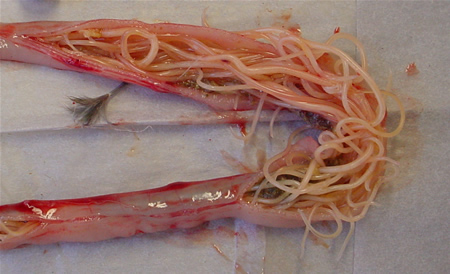
It is not that the worms instantly affect the chicken as birds manage to stay with the blight; however, this worm infection is contagious. The eggs of the worm are released in the chicken droppings and other chickens tend to develop the same infection over the time. The extreme condition is when the worms infect the oviduct and then the eggs obtained are infected.
2) Gapeworms:
These worms are found attached to the windpipe, leading to blocked breathing (gasping). It is seen that chicks are more prone to this type of infection and sadly, it is fatal if left untreated. The gapeworm cannot be acquired solely; there is always assistance of a host like slugs, snails and earthworms. Just like human flu and coughing infections, these are contagious and transmitted if infected bird shares same space with healthy ones.
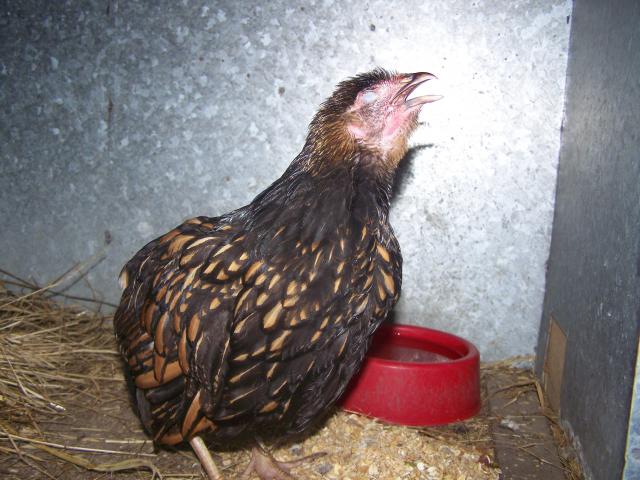
3) Tapeworm:
Have you heard about the ribbon look alike worms? These have the segmented body type and tend to attach themselves to the intestine walls with their heads. This blight affects the bird’s immunity largely and due to contagious nature, other birds easily get into the trap.
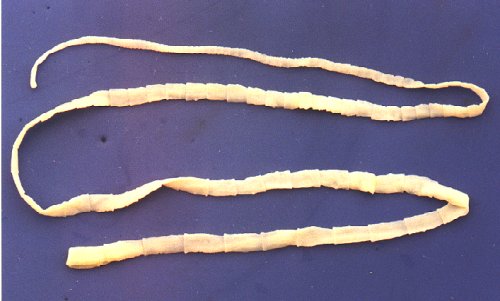
Signs of worms:
The most common signs of worm presence are:
- Sudden weight loss
- Reduced egg production
- Impaired breathing
- Sluggish behavior
- Appetite changes – sometimes chickens start eating too much and sometimes not even once
- Anal problems: your chickens must be rubbing their anal on the ground again and again
- Vomits and nausea
- Comb gets pale
- Check the chicken droppings – sometimes you can witness worms (severe condition)
How to worm chicken?
Well, worming chickens is not at all daunting; you can simply go to the nearest drug store and ask for an effective worm medication. You can use the medication with water and put it inside the coop. You can simply do this three times a year in order to make sure your chickens remain safe from all the hassles. However you can give natural cure for worms in chickens.
Benefits of natural worming:
Worming chickens using natural products such as garlic, pumpkins, cucumber seeds, apple cider vinegar and edible diatamaceous earth will kill internal parasites in chickens and on the other hand will not affect eggs or meat of chickens; also doesn’t depress immune system of chickens and is less expensive as compare to medicated treatments. Below are some natural de-wormers:
Garlic:
The best type of natural chicken wormer is garlic because of its anti-parasitic and antibacterial properties. You can simply use water because the chickens will not ever take raw garlic; add 6 to 8 cloves of garlic in water and leave it overnight. Next morning, and pour that liquid in a nice container and place inside the coop. Make sure when you do this, you have removed all the other source of water from the coop. Try leaving chunks of garlic in the water, maybe the chicken start liking the taste.
Pumpkins and cucumber seeds:
You can even chop cucumber, pumpkin and gourd pulps together and place them inside the coop by removing all other food items. You can even use the seeds; they are very effective in de-worming the chickens. These fruits help in flushing out the intestine and anal area by removing all the attached nasty parasites.
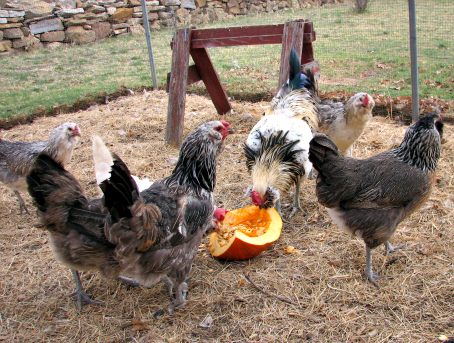
Apple cider vinegar:
Add some amount of this vinegar in the coop water so that water gets higher acidity – it would simply flush out all the forming infections within the body and boost the chicken’s immunity.
Try to work out with natural ways of feeding so that you can wipe out all the poultry worms effectively and have a happy and healthy flock family.
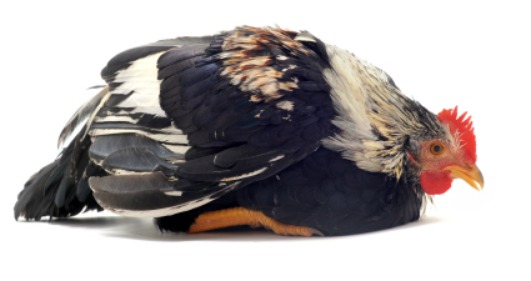
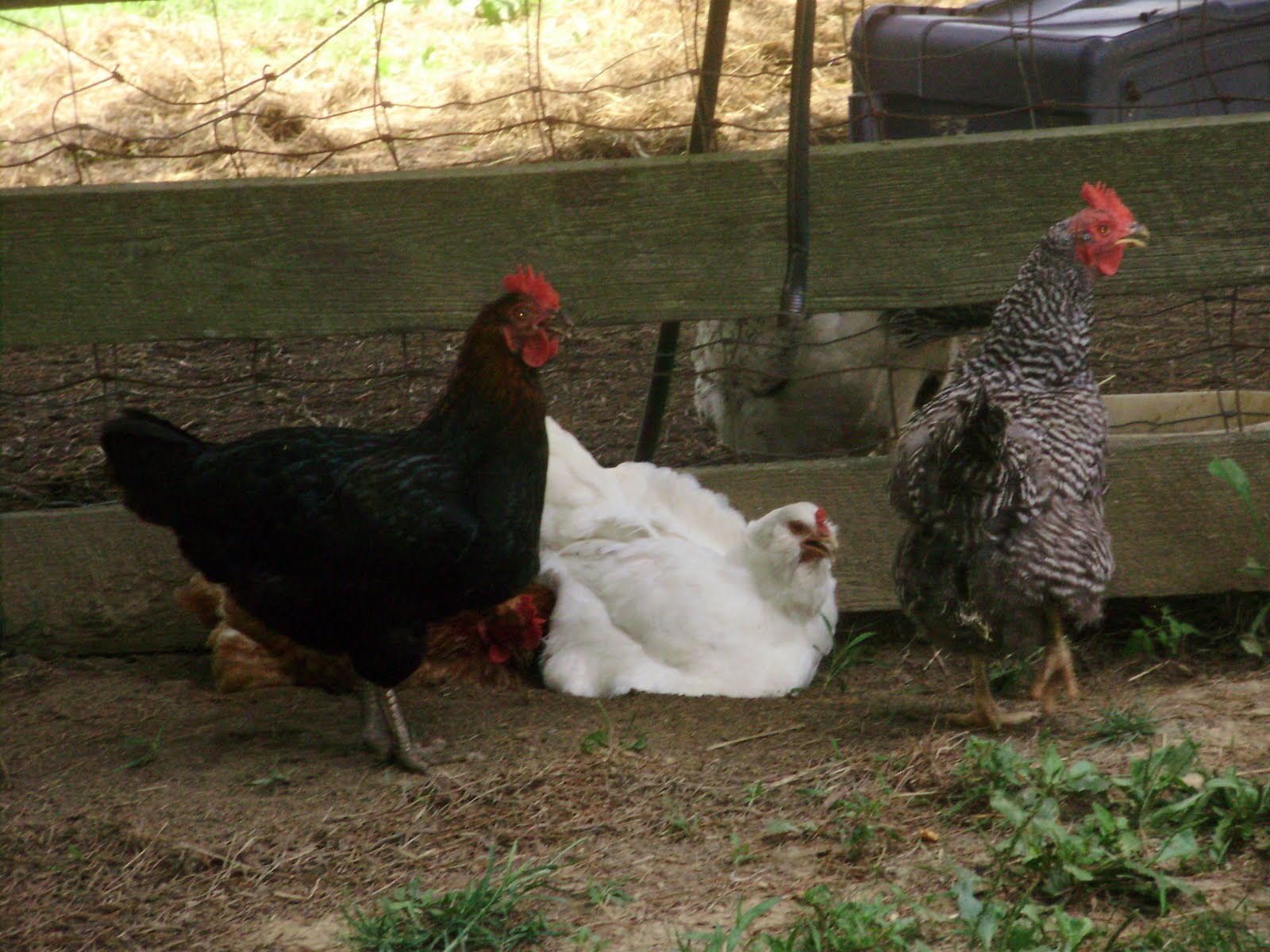
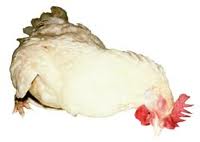
How much apple cider vinegar? Vinegar with the “mother” better?
Organic Apple cider vinegar (with the Mother in it) at 1 TBSP per gallon. Do NOT put it in a metal container, MUST be plastic. The vinegar is great for their bodies and gut
I rescued a baby Mallard that was probably 1 day old a little over a week ago. I heard that they do better with a partner duck so I got him a baby Black Cayuga from the feed store. The other day I noticed my Mallard had a worm coming out of him while he was playing in the bath tub! I was HORRIFIED! It looks like a roundworm. I have since seen 3 more long worms that has either been hanging out of his rectum or passed in his stool. I have been putting apple cidar vinegar in their water for 2 days now. I am wondering how long it will take to get rid of the worms completely? Also, they keep doing this thing where they are like gagging or something and will sometimes bob their heads up and down.. What is that about? They seem very healthy otherwise. I am going to try the garlic as well as the cucumer and pumpkin. I am assuming all of this treatment will work for ducks as well? Thank you so much for all of this information and your help, I greatly appreciate it!
May I suggest this FB page. Lots of natural information here https://www.facebook.com/groups/herbalpoultrycare/
Can you use garlic powder? I found round worms in their poop but I have 12 babies about a month old and don’t want harmful chemicals
Yes garlic is suitable as a natural wormer for chickens. but you should given it moderately or for some treatments not regularly. You have to given certain amount of doze. Here is another good article that talks about use of garlic in chickens.
http://www.the-chicken-chick.com/2014/05/raising-chickens-naturally-garlic-with.html
My chickens eat raw chopped garlic with no problem. Chop it very fine and sprinkle it on the ground and in the coop. It will deter mites and worm them at the same time.
I start my chicks on fresh chopped garlic at 2 weeks of age. Every month to 6 weeks I give them garlic and they really enjoy it. In fact they jump up to take it from my hands and fly on to my shoulders trying to get more.
Every autumn I feed them pumpkin (just cut on in half and let them do the rest) which is a favourite. During summer they have cucumber. Remember it is the seeds that do the most good so leave them in the vegetable!
While garlic will work for roundworms, ACV is not anthelmintic. Also, it is the seeds of the pumpkin, not the flesh which contain curcurbactin.